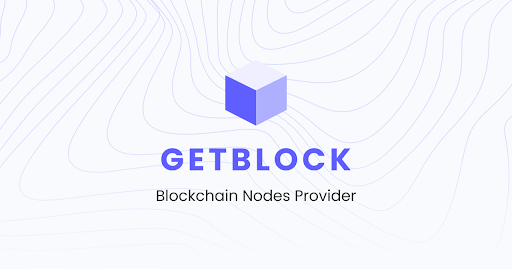Running a blockchain node helps to ensure that no unverified data enters a blockchain. However, the process of creating your own node can be rather tedious. Besides, it also requires programming and computer skills. In this article, we will talk about why you might want to consider running a node with the help of a blockchain node provider instead.
What is a blockchain node?
A blockchain node can be any device containing a copy of blockchain information. Nodes are geographically distributed elements of infrastructure making sure new additions made on the blockchain are valid. Nodes are required to provide detailed information about the blockchain and reject all false inclusions.
Each blockchain has its own node ecosystem. That being said, a blockchain ecosystem consists of various nodes, which ensure the proper functioning of the blockchain consensus algorithm.
N.B. Check out GetBlock’s guide on blockchain consensus algorithms and the main difference between them
Among some of the most widely used types of nodes are full, light, and archive nodes.
- Full nodes, crucial in keeping the blockchain up and running, host the entire blockchain history. Full nodes are responsible for copying and saving transactional data.
- Light nodes are the so-called read-only type designed to provide information on the current state of a blockchain. Often, light nodes are required to synchronize with full nodes.
- Archive nodes are essentially full nodes running in an archive mode. By storing the entire blockchain information since its inception, archive nodes are typically used for analytical purposes.
Reasons to run a blockchain node with GetBlock
Blockchain nodes are a crucial part of blockchain technology used to create and launch decentralized applications of various kinds - from digital finance to entertainment. Many analysts argue that blockchain technology could become the next Internet craze, mainly due to the introduction and mass adoption of Web3. Nevertheless, in order to properly utilize blockchain technology, one might consider working with blockchain nodes providers, such as GetBlock, and here’s why:

Privacy
In case users do not wish to share their IP address with a random public node, there is an option to conduct blockchain operations through privately designed nodes, which guarantees that your sensitive data will not be traced back by anyone. Dedicated nodes hosted by GetBlock let clients utilize the entirety of blockchain node infrastructure and meet the requirements of each blockchain-based project. What’s more, GetBlock offers an unlimited number of requests and a variety of API interfaces to choose from, making it a versatile and flexible premium class solution for both individual users and bigger companies.
Security
Threatening and undermining security remains one of the biggest challenges when deploying a node yourself. In case your new node is discovered by hackers (any sort of third party), the owner of the node is responsible to provide proper security. With services like GetBlock your node infrastructure is granted with top-level security.
Reliability
Working with a blockchain node delivers legit and verified data to users. GetBlock clients get fast access to API-driven, attack-resistant and reliable node infrastructure, which makes it possible to implement all kinds of applications, e.g. decentralized exchanges, security protocols, NFT marketplaces, streaming services, and much more. Running a node with GetBlock prevents the possibility of malicious attacks and increases the level of trust among other node participants.
Speed
When you host a node yourself, your network speed may slow down, due to the fact that you are overlooking traffic restrictions (e.g. using excess bandwidth). Interrupted or unstable Internet connection may require constant relaunches of the blockchain node. What GetBlock does is it provides fast connection so that users do not experience congested traffic.
Productivity
For many developers, building a self-hosted node architecture might be a dreary activity and essentially a relic of the past. GetBlock takes the weight of the monotonous and lengthy process off its clients’ shoulders and delivers instant access to digital data geographically spread across multiple computers. The only thing one should do is to book an API endpoint maintained by GetBlock.
N.B. Here’s how you can become a Blockchain Developer in 2022
Conclusion: why running a GetBlock blockchain node is easy
GetBlock is a pioneer blockchain nodes provider for over 40 leading networks. What makes GetBlock stand out among the rest of blockchain-as-a-service providers is its thorough control and constant development of its services.
Launching a self-hosted blockchain node not only requires deep knowledge of programming skills, but also the capability to perform continuous maintenance work, including server updates, as well as the proper utilization of security protocols, and so forth. With GetBlock - blockchain-as-a-service provider - clients can forget about the monotonous part of the job.
Besides, GetBlock clients save their money by hiring a top-notch team of developers to set up node infrastructure in a fast and easy manner, instead of paying a monthly fee to host a node on the network themselves.
Beginners in blockchain development can purchase Shared nodes, GetBlock’s perfect first-entry solution. Clients get instant access to peer-shared node infrastructure and can start experimenting with their decentralized applications immediately.
Dedicated nodes are precisely tailored nodes maintained by the GetBlock team. This type of nodes can help businesses skyrocket to success in a short period of time.
GetBlock’s recently launched node clusters option is the most popular option among bigger businesses requiring robust scaling solutions.
If you have any further questions, please feel free to contact GetBlock’s team via this link.